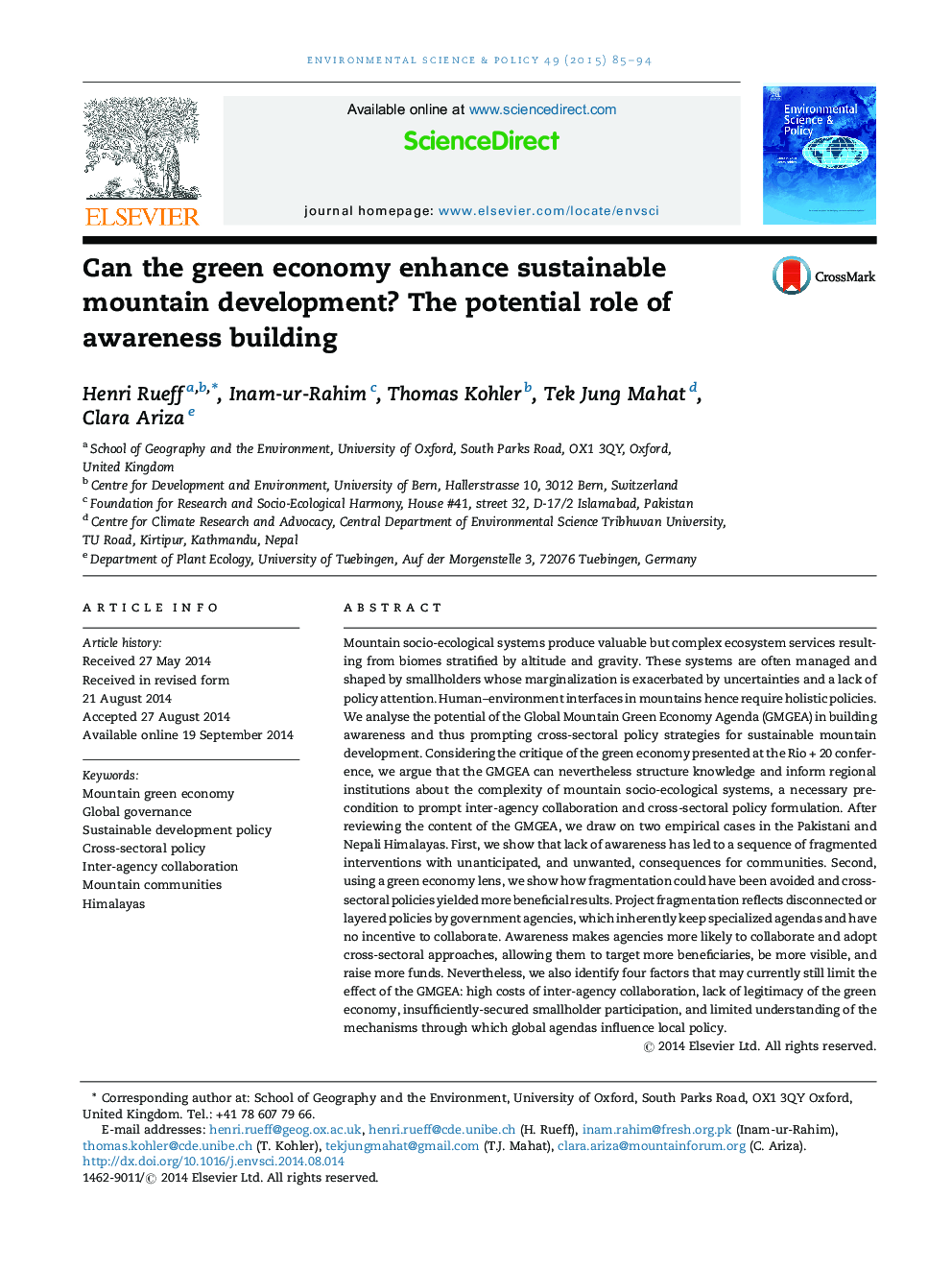| کد مقاله | کد نشریه | سال انتشار | مقاله انگلیسی | نسخه تمام متن |
|---|---|---|---|---|
| 1053522 | 1485057 | 2015 | 10 صفحه PDF | دانلود رایگان |
• The vertical distribution of biomes in mountains requires cross-sectoral policy.
• Governments are reluctant to engage in interagency cross-sectoral collaboration.
• A Global Mountain Green Economy Agenda can potentially build actors’ awareness.
• This awareness can potentially trigger actors’ consultation and cross-sectoral policy.
• How global agendas inform local actors is still insufficiently understood.
Mountain socio-ecological systems produce valuable but complex ecosystem services resulting from biomes stratified by altitude and gravity. These systems are often managed and shaped by smallholders whose marginalization is exacerbated by uncertainties and a lack of policy attention. Human–environment interfaces in mountains hence require holistic policies. We analyse the potential of the Global Mountain Green Economy Agenda (GMGEA) in building awareness and thus prompting cross-sectoral policy strategies for sustainable mountain development. Considering the critique of the green economy presented at the Rio + 20 conference, we argue that the GMGEA can nevertheless structure knowledge and inform regional institutions about the complexity of mountain socio-ecological systems, a necessary pre-condition to prompt inter-agency collaboration and cross-sectoral policy formulation. After reviewing the content of the GMGEA, we draw on two empirical cases in the Pakistani and Nepali Himalayas. First, we show that lack of awareness has led to a sequence of fragmented interventions with unanticipated, and unwanted, consequences for communities. Second, using a green economy lens, we show how fragmentation could have been avoided and cross-sectoral policies yielded more beneficial results. Project fragmentation reflects disconnected or layered policies by government agencies, which inherently keep specialized agendas and have no incentive to collaborate. Awareness makes agencies more likely to collaborate and adopt cross-sectoral approaches, allowing them to target more beneficiaries, be more visible, and raise more funds. Nevertheless, we also identify four factors that may currently still limit the effect of the GMGEA: high costs of inter-agency collaboration, lack of legitimacy of the green economy, insufficiently-secured smallholder participation, and limited understanding of the mechanisms through which global agendas influence local policy.
Journal: Environmental Science & Policy - Volume 49, May 2015, Pages 85–94
